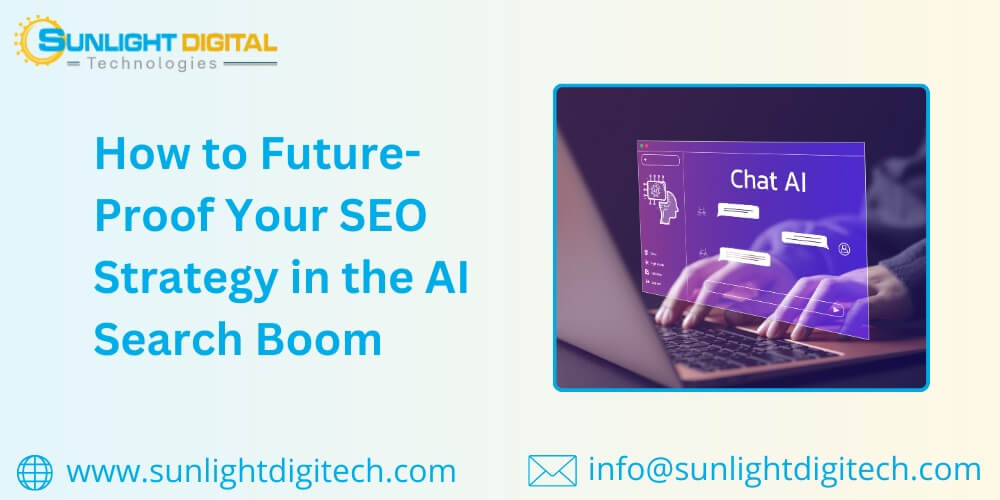With the changing nature of the digital world, companies need to change how their content is made available, and AI-driven search is taking the front line. The intelligent players of this age know that AI SEO is not a luxury, but a necessity. Organizations may need to adopt new trends and stay visible, authoritative, and competitive in their content.
The essence of the traditional SEO changes in the AI search boom. According to the AI search engines like Google, ChatGPT, and Bing Chat are now able to produce answers based on the synthesis of content on the entire web, i.e., clarity, structure, and trust are more significant than eve.r Businesses that are looking to be ahead must develop their SEO Strategy by ensuring that content is not only optimized but also AI-ready.
Another important element in this development is the involvement of a reputable SEO Company. Collaborators familiar with both traditional optimization methods and the peculiarities of AI ranking can assist in developing the content that will be memorable to the user and to AI indexing.
The other worthwhile consideration is the inclusion of ai seo services, which focus on future trends, not the backlinks or keywords, but the overall optimization. Such services would typically feature structured data execution, optimization of long-tail questions, content freshness tracking, and multi-format harmonization (text, visuals, and voice).
Key Elements to Future-Proof Your SEO
-
- Structured Data & Schema
Marked-up content is preferred by the AI systems. The use of schema, particularly in web pages of articles, FAQs, products, and events, increases the presence of content snippets in SEO AI-powered responses. - Conversational, Long‑Tail Queries
People are becoming more inclined to use natural language to search, e.g., the query how to future-proof SEO instead of using terse keyword strings. The creation of content around these forms fits the user behaviour as well as the AI interpretation. - Digestible, Structured Content
AI has the tendency to create summaries or highlights. Breaking up text and employing Headers, bullet points, and well-defined sections allows AI and the end user, to digest and present your message correctly. - Depth, Relevance & Regency
Instead of turning out pages that are thin and over-optimized, work on depth and completeness. AI pays more attention to high-quality content with authoritative facts that have been updated recently with new examples. - Multi‑format & Hybrid Access
AI search doesn’t stop at text. The combination of multimedia (infographics, charts, video, podcasts, etc.) and voice/image search makes sure that it will be more discoverable and can endure changes in the platform.
- Structured Data & Schema
Changes to the AI search do not mean that SEO is over; it is a sign that it is evolving. Those who embrace innovation by collaborating with experts and embracing smart strategies can use this unrest as an opportunity. Considerate strategic, structural, and content quality investments create resilience. This article is an excellent reminder that AI is the new normal and the most necessary tool in today’s world.
FAQ
1. What does future-proofing SEO mean in the AI search boom?
It means building long-term strategies that adapt to evolving AI-driven algorithms, ensuring your website remains visible, relevant, and competitive in search results despite ongoing technological changes.
2. How is AI changing SEO strategies?
AI search engines now prioritize intent, context, and conversational queries over exact keywords, making high-quality, user-focused, and structured content critical for long-term visibility.
3. Should I still do keyword research with AI search?
Yes, but focus on semantic search. Instead of targeting only exact keywords, research long-tail, intent-driven, and conversational phrases that align with how users naturally ask questions.
4. How important is content quality for AI-driven SEO?
Extremely important. AI search engines reward content that is clear, authoritative, well-structured, and genuinely helpful to users rather than content stuffed with keywords.
5. What role does structured data play in AI SEO?
Structured data helps AI understand your content better, increasing chances of ranking in featured snippets, voice answers, and AI-generated search summaries.
6. Should businesses optimize for voice search?
Yes. Voice queries are rising, and AI-powered search often mirrors conversational, natural language patterns. Voice search optimization improves long-term discoverability.
7. Are backlinks still relevant in AI SEO?
Yes, but AI favors quality over quantity. High-authority, trustworthy backlinks are more valuable than numerous low-quality links.
8. How can small businesses adapt to AI SEO changes?
Focus on niche authority, local SEO, helpful content, and optimizing for AI-driven search tools without heavy spending on advanced technologies.
9. Is user experience (UX) now part of SEO ranking factors?
Yes. AI rewards websites with fast load times, mobile optimization, intuitive navigation, and engaging layouts that provide a seamless user journey.
10. How often should I update my SEO strategy in the AI era?
Review SEO performance at least quarterly and adapt quickly to new AI-powered updates, emerging trends, and evolving user search behaviors.
11. Does AI-generated content affect SEO?
It can help, but search engines prefer originality. Use AI tools for support, but always add human expertise, credibility, and authenticity.
12. Will personalization play a bigger role in SEO?
Yes. AI customizes search results by user intent, history, and preferences. Tailoring content to audience needs boosts visibility and engagement.
























